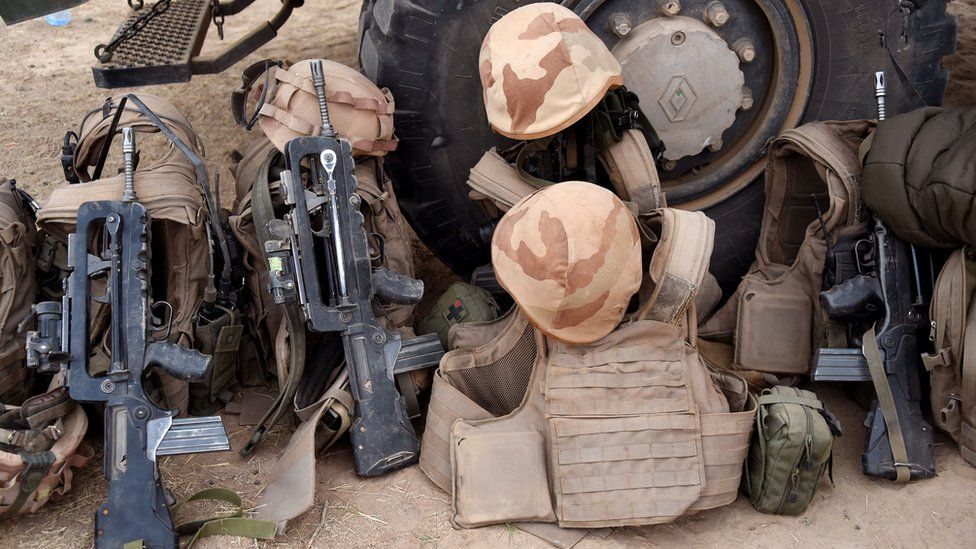French soldier to be tried over Burkina Faso child sex abuse
- Published

The trial of a French soldier charged with molesting two young girls while serving in Burkina Faso in 2015 is due to start on Tuesday.
The 40-year-old serviceman, only named as Sebastien L, is set to appear before a criminal court in Paris.
Prosecutors say he filmed himself touching the girls in a hotel pool in Burkina Faso's capital, Ouagadougou.
The soldier initially denied the allegations but later admitted inappropriate contact, prosecutors say.
Sebastien L was a member of the Barkhane force set up in 2014 in an effort to stop Islamist militant groups in the Sahel region.
The incident was brought to the attention of French consular officials when the children's French mother found the footage on a camera that the soldier had left behind, prosecutors say.
Trial location dispute
He was then flown out of the country to stand trial in France.
The father of the girls, Ben Ouedraogo, who holds both French and Burkinabe citizenship, wanted the soldier to go on trial in Burkina Faso.
"This means that as long as you're a French soldier abroad, you can [do] anything you want. Why are we not trying him here?," he told AFP at the time.
If Sebastien L is convicted he faces a maximum of 10 years in prison.
About 3,000 French soldiers are deployed as part of the Barkhane operation, along with troops from Mali, Mauritania, Burkina Faso and Chad.
Two months before the allegations against Sebastien L. were brought to light, a group of French troops in the Central African Republic were accused of raping six girls aged between nine and 13.
French prosecutors last month asked for that case to be dropped, saying the evidence was unreliable
French President Francois Hollande had cautioned against drawing links between the two cases, saying they were totally separate.
- Published30 May 2019
- Published8 May 2014